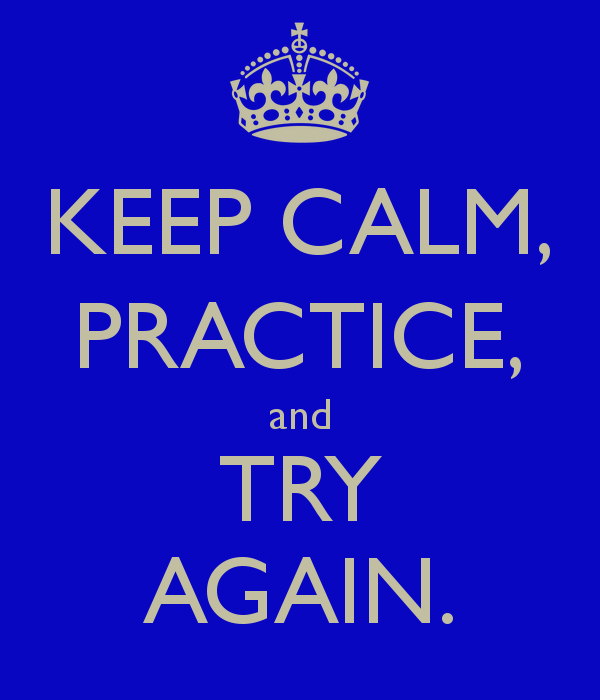So you studied hard, got your game face on, and took the MCAT a couple weeks ago. When you checked your score, you didn’t see the number you were hoping to see. Now you’re facing the ultimate question – should you retake the MCAT?
This is a hard question no matter what – you have to think about investing resources, time, mental energy AGAIN, but here are some things that you should absolutely consider when you think about retaking.
1) How close are you to your practice test scores?
Ideally, you would have some idea of how you were going to perform before you took the exam. Your practice test scores are far and above the best predictor of how you will perform on the actual test. If your score ended up being significantly lower than your performance on practice tests (e.g. a 15 point difference on the new scoring scale), you have a compelling reason to retake the exam. A drop like that, whether on one section or across the board, means that you were well prepared for the exam, but something about the actual exam threw you off -- this could be a result of test anxiety, one passage that you blanked on, or even just a terrible night’s sleep. If your MCAT was pretty close to your practice test scores though, you have to be prepared to do something differently when you study if you decide to retake.
2) How strong are the other parts of your application?
An easy thing to forget is that the MCAT is only one part of your overall medical school application. Look at your grades in science classes, overall GPA, extracurricular and volunteer activities, and your letters of recommendation. If all of those areas are strong, you can cut yourself a little bit of slack in your MCAT score. However, if there are some areas of your application that you feel have some glaring weaknesses (for example, a few grades below a ‘B’ in medical school pre-requisite classes, more than half of your letters of recommendation coming from areas outside of the sciences/medicine, or a lack of clinical experience), it is more important for your MCAT score to be rock solid.
3) When are you applying?
Do you have only a month before your intended medical school application cycle begins? If so, you have a lot of other things to do with your time (like write your essays!). If you have more than three months before your applications open, you have more flexibility in how to distribute your time and can more seriously dedicate time to the MCAT. If you have a relaxed schedule and have full days to dedicate to the MCAT (Winter vacation is a good example), it is possible to successfully retake the exam after about a month of studying. Less than that will not give you enough time to target your weaknesses.
4) What else do you have going on?
Are you about to enter a really challenging semester in school, or taking off on an international volunteer job for a gap year? Or is your schedule pretty relaxed after your first round of the MCAT? As you probably remember, studying for the MCAT requires a significant commitment in time and energy, and if you are going to redo your study period, you want to make sure you are able to make that commitment. It is much worse to retake the MCAT and to score lower than your initial attempt than to apply with just one lower score. This goes for both the overall score and across sections - medical schools don’t necessarily ‘superscore’ (look at the best score in each section) in the same way that colleges did with the SAT!

If you are going to retake the MCAT, developing a studying strategy is key!
Here’s an example.
Let’s say you get a 510 on the new MCAT, with a 127 in Chem/Physical Foundations, a 128 in Critical Analysis (Verbal), a 131 in Bio/Biochem Foundations, and a 125 in Psych/Soc. You’re disappointed with your Psych/Soc scores, so you decide to retake it. If you get a 129 now in Psych/Soc, but your Bio/Biochem score drops to a 127 because you weren’t focusing on it as much, that is a bad sign to medical schools. So make sure to focus on all of the sections when you are re-studying!
In general, here’s a quick table to help you consider some of the important factors to retaking the MCAT. Keep in mind that everyone’s test, scores, and study habits are different, and that the final decision is up to you!
|
Criteria |
Consider Retaking |
Less Beneficial for you to Retake |
|
Practice Test Scores |
If you are 3+ points below your average score per section |
If you are within two points per section |
|
Strength of your Application |
If you did poorly on MCAT pre-requisites, or don’t have enough medical or science background in the rest of your application |
If the rest of your application is well-rounded and strong |
|
Application Cycle |
If it is before March of the year of your intended application cycle |
If you have less than 3 months before your application opens |
|
Other commitments |
If you have low(er) commitments for the few months and have the time to dedicate |
If your schedule is packed or inflexible |
For more relevant reading, check out these other blog posts, written by our MCAT tutors: How is the MCAT Changing in 2015, Getting over Test Day Nerves for the MCAT, Q&A with the Director of Harvard’s MD/MBA Program.Looking to work with Nikita Saxena? Feel free to get in touch! Cambridge Coaching offers private in-person tutoring in New York City and Boston, and online tutoring around the world.



Comments